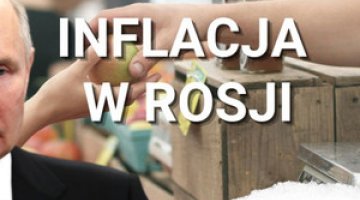A summary of the politico-economic changes taking place during Vladimir Putin's first term of office
KEY POINTS
1. The most significant achievement of Vladimir Putin's team over the three years of his term of office is the realisation of legislative changes, which may constitute a base for further - more detailed - political and economic reforms. This is, to a certain degree, a return to the economic tasks set out by a team of reformists in the early 1990s, which were impossible to realise at the time due to conflicts between the Kremlin and legislative powers.
2. The political reforms introduced during Putin's term of office aimed primarily at increasing the Kremlin's control over Russia's socio-political life. This goal has been achieved to a large extent. In effect, it has given rise to a growth in the authority and position of the Kremlin, on the one hand and, on the other, to the authoritarisation of Russia's political system.
3. Within the economic sphere, over the past three and a half years, a land reform was carried out (enabling land sales transactions in the Russian Federation), and changes were also introduced within the budgetary-fiscal sphere and the pension system. Russia was crossed off the Financial Action Task Force's (FATF) blacklist and granted the status of a market economy by the EU and the USA. Simultaneously, however, press u re from various groups from the president's entourage opposing the reforms, and also business and regional elites, meant that reform projects often lost their liberal undertone and radicalism already at the stage of forming a legal base. For this among other reasons, the changes initiated in almost all spheres of the Russian economy in many cases proved to be inconsistent and incomplete. Problems with their implementation and the slow pace of structural reforms did not allow for the strengthening of spheres other than the raw material sector or making the Russian economy less dependent on the situation on foreign raw material markets. Therefore, the main goals of President Putin's economic reform program have not been realized.
4. Non-legislative changes undertaken by the presidential circle were also of particular significance for Russia's present situation. These changes had no legal basis and resulted from informal actions undertaken or inspired by the authorities. As a result of these activities, the president gained a loyal majority in parliament, increased the role of security services in the country, simultaneously putting a stop to the direct influence of big business on the Kremlin's political decisions. Non-legislative changes have also led to the restriction of freedom of speech and pluralism of information in Russia.
5. It seems that the reform process initiated by President Putin still depends primarily on the support of the Kremlin. Because of this, the continuation of reforms over the coming years will be closely linked with Putin's position following his likely re-election in March 2004, and his political determination to continue with the changes. Aside from internal factors, petroleum prices on the global market will also be of key significance for the reform process. Such dependence is limiting Russia's chance for real modernization over the next few years.
Introduction
Following his rise to power in 2000, Vladimir Putin presented a comprehensive socio-economic program for the development of Russia through to 20101. This program was prepared by a team of economic experts from the Centre for Strategic Studies (CS S )2 led by St. Petersburg's German Gref. In spite of the fact that this document was never accepted in its entirety, and only its main assumptions were approved, as of 2000, short- and medium-term socio-economic government program have been based on the same principles.
The medium-term goal of this development strategy through to 2010 was the reduction of the widening gap between Russia and developed nations. The long-term goal, on the other hand, was the restoration and strengthening of Russia's position as a leader on the global scale. The reforms of Russia's political system, social policy and the modernisation of the economy were intended to help achieve these goals.
The aim of this study is to describe and analyse political and socio-economic reforms, as well as non-legislative changes initiated under Vladimir Putin's presidency. New reform activities will probably not be initiated over the six months remaining until the presidential elections. For this reason, it is already possible to summarise the changes achieved in the political, economic and social spheres during President Putin's first term of office.
A description of the political and economic reforms and also of non-legislative changes, which took place in the Russian Federation over the past three and a half years, has been included in Part I of this study. The conclusion hereof attempts to summarise the actual achievements of President Putin's team, and to answer the question concerning perspectives of the reform process and factors determining the shape there of.





